Parenting toddlers through their “I can do it myself!” stage, can be tricky and fun to watch. By the time toddlers turn two, they walk, talk, run, laugh, dance and help. Every day, they gain new life experiences and they also start to naturally develop their independence.
Most toddlers are heavily reliant on us parents during their early years of life, but there comes a time when they want more than anything to demonstrate their independence and self-sufficiency. Oftentimes, the last thing they desire is for a parent or a caretaker to do something for them, even when they are faced with frustration.
I recently spoke with Dr. Gloria Monsalve, who is a bilingual family physician and an advocate for patients in the San Fernando Valley. She received her medical degree from Colombia’s Industrial University of Santander Faculty of Medicine and has been in practice for more than 15 years, helping those in low-income communities, specifically the Latino community. I voiced some of my concerns to her and she helped me further navigate the topic.
The development of independent behavior in toddlers usually occurs between the ages of two and three, according to Monsalve. “They start showing signs of not needing mom around and the ability to start doing things for themselves.”
My son Levi, who turned two last month, has demonstrated independent behavior. He used to need my help going up and down the stairs. He would either hold on to the rail or to my hand, but he no longer needs my assistance at all. It’s definitely a bittersweet feeling for any parent.
Some other examples of his growing independence are the following:
- Walking
- Putting socks on and off
- Putting on his shoes
- Feeding himself
- Sitting on a chair
- Opening doors
- Cleaning after himself and around the house
Monsalve said that another great example of their growing independence is when the parent wants to do something for their child and the child automatically says, “No, no, no, no.” She also said that toddlers will also demonstrate independence by painting on the walls with crayons or markers.
As a first-time parent, I learned that it’s important to provide opportunities for our children to be independent. Toddler’s at this age are like little sponges that absorb everything or anything we say or do.
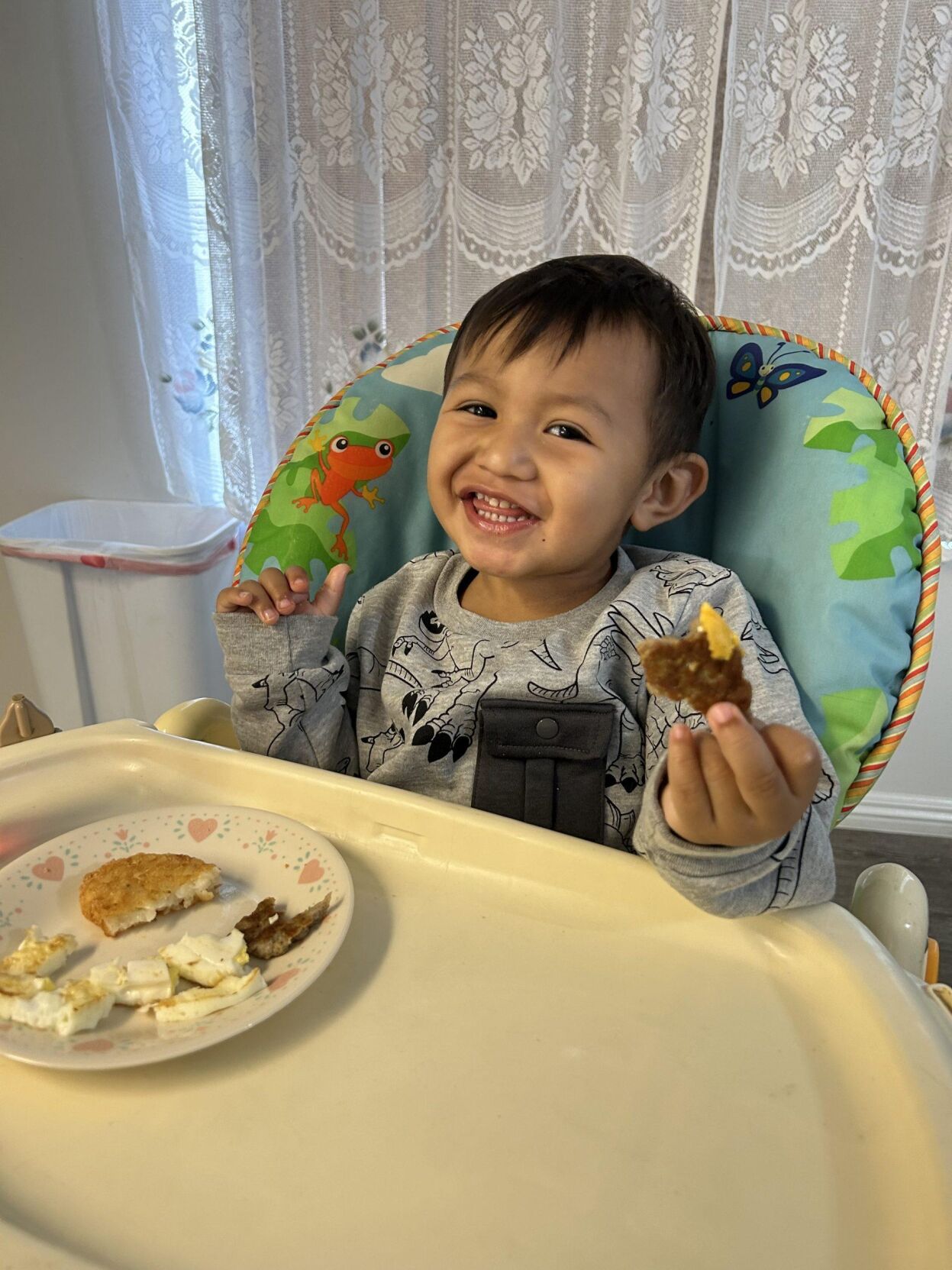
I always let Levi feed himself, even if it means making a mess. As a parent, sometimes you must let go of things that your child can do for themselves.
According to Monsalve, being independent at this age also builds confidence. “There’s studies that show that toddlers who are independent will academically be better. Because eventually, when they are in preschool or kindergarten, they will start to do things for themselves at school,” Monsalve said.
Here are tips for first time parents on navigating toddler independence:
Be their safe space
The first step in supporting your toddler’s independence is to love them and show them that they can trust you to be supportive of them. Building that foundation at an early age is crucial. Also, allow the child to make mistakes without getting in trouble.
Raise a little helper
The toddler independence stage can work in your favor. Toddlers’ desire to prove they are capable (even if they aren’t) presents an opportunity to raise helpers. My son, Levi, likes to put his toys away. He also likes to help out by putting the dirty clothes in the laundry basket or even cleaning after he drops water on the floor. My favorite cleaning task with him is when he helps out with the laundry. He puts all the clothes in the washer and he also puts them in the dryer. All these tasks may require lots of patience, but it will be okay. Every time your toddler finishes a task, it’s a boost of confidence and self-esteem and a rewarding feeling as a parent.

Every time my son, Levi, is done eating, he puts his bowl in the sink. Photo by Amairani Hernandez for CALÓ NEWS. Photo by Amairani Hernandez for CALÓ NEWS.
Letting them pick
At this toddler stage, it can be tempting to choose an outfit for your child and force them to put it on. But as they grow in independence, they might start to choose what they want to wear. Some signs to look out for are the finger pointing or when they say, “that.” Even though they are still little, they do begin to develop a greater sense of themselves, and their personalities start to evolve. So, offer them choices.
Engagement
Interacting with your child is also a very important part of developing their independence. Some of those interactions can be with your child helping out in the kitchen or dancing in the car. Just building experiences and laughter together will also build that trusting foundation.
With age comes greater responsibility, independence and self-confidence. Each year, you’ll see that your child will want to do more on their own. As they keep growing, they will also be more aware of their limitations. With their independence growing, their future developments will include preparing simple snacks, making friends and going to school. I know it’s a lot to take in, but it’s going to happen no matter what. Those clingy two-year-olds will become cheeky preschoolers before you know it.
ââIf there is anything I can help young mothers and fathers with, please don’t hesitate to reach out to me at amairani@latinomedia.org. Follow my Mami & Me column here.

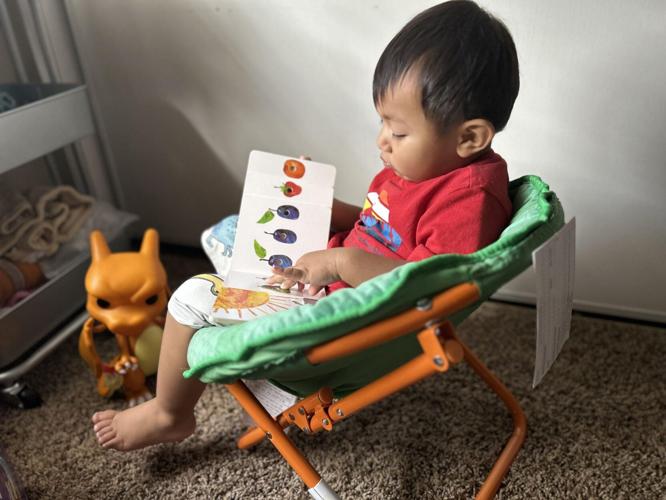
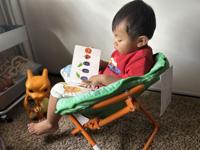
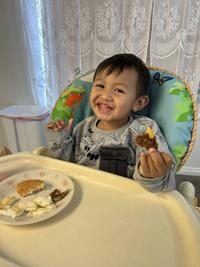
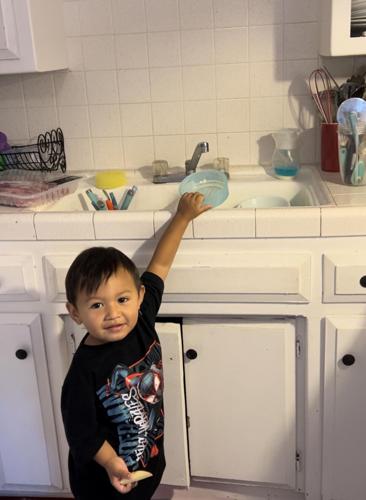
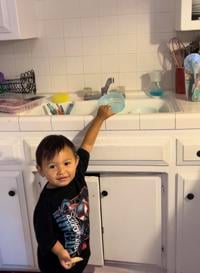
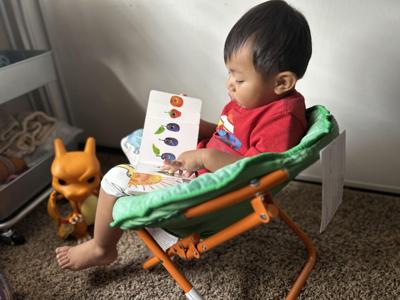














(0) comments
Welcome to the discussion.
Log In
Keep it Clean. Please avoid obscene, vulgar, lewd, racist or sexually-oriented language.
PLEASE TURN OFF YOUR CAPS LOCK.
Don't Threaten. Threats of harming another person will not be tolerated.
Be Truthful. Don't knowingly lie about anyone or anything.
Be Nice. No racism, sexism or any sort of -ism that is degrading to another person.
Be Proactive. Use the 'Report' link on each comment to let us know of abusive posts.
Share with Us. We'd love to hear eyewitness accounts, the history behind an article.